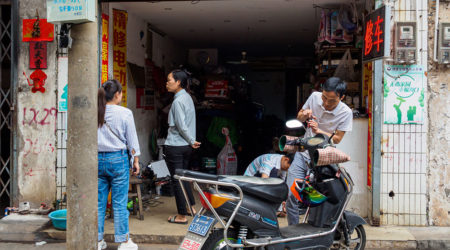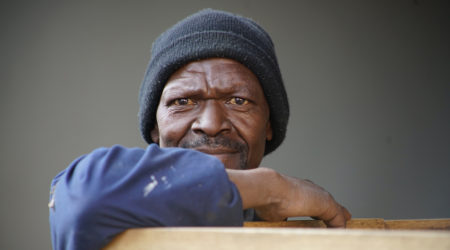Imagining Post-COVID recovery
Originally posted on the FSD Kenya Website, July 10, 2020
How Financial Diaries families imagine reconstructing their income streams
When we spoke with Benson in April, he was feeling optimistic about getting through the COVID-19 crisis unscathed. He worked in a factory that manufactured paper products, and toilet tissue was in high demand. He was sure he would keep his job. In June, like many of our respondents, his outlook was gloomier. The factory had taken a huge hit from drops in demands for paper products at hotels and restaurants. Trying to avoid mass layoffs, the company cut workers’ shifts to reduce costs. The chama he had with his colleagues at work had to put things on hold as no one was in a position to save. He used all his own savings to help pay a hospital bill for his father. He was two months late in paying rent. Benson was worried about getting laid off completely. No one knows when jobs like his will come back.
In our second round of calls with about 200 Kenya Financial Diaries respondents in June 2020, across all types of livelihoods, things had become much more challenging, with some of the pressures on rural families increasing, bringing the economic stress levels there up to par with urban areas. We heard, for example:
- Rural families’ stocks of dry goods were running low faster than expected with extra family members and school children staying at home.
- Sellers of oranges in Makueni County lamented that traders have not come to their farms to buy their fruits this year. Farmers invested heavily in fruit production, especially in spraying pesticides, and now have their investments rotting in their fields. They could only sell a little and for very low prices in their local markets.
- Casual workers in Mombasa told us the market was now flooded with casual laborers, making so many other workers lose their jobs. This has driven the daily rate for casual work down by more than half, with many workers competing for very few jobs.
- Business owners of non-essential goods and services—like wigs, embroidery, furniture, and second-hand clothing—told us sales had come to a standstill.
- Remittance recipients worried their supporters in the family—typically adult children and husbands—may not work again for some time. They lost their jobs, and many of those jobs, such as factory workers, truck drivers and others, would be slow to come back.
With incomes so much lower than usual for so long, many families have already tapped their savings and accumulated much more debt than usual with formal and informal lenders (which we’ve written about separately). So how do they imagine they will be able to get back to work and earn an income again?
Our respondents reminded us again that in the absence of a formal public safety net, work in the informal sector serves that purpose, and in particular small-scale trade. Families were most worried that those who used to have formal jobs wouldn’t get them back quickly. While those jobs were very important for remittances and overall family welfare, respondents knew that employers have taken a very hard hit and may not bounce back quickly. Casual workers were a little more optimistic. Some construction activities, for example, might resume once the economy was up and running again. However, this would take time, and there would be many workers chasing few opportunities. The market might be better if kids were sent back to school, they said. Students at home were substituting for hired labour, particularly on farms in rural areas. Self-employed workers who sold expensive and non-essential goods would be waiting a while for their businesses to recover, but at least many of them had existing stock that could be sold when demand returned. Others could ask customers to give them advances on new projects. Customer numbers would be low, but there might be ways to keep working a little, they told us.
With earning channels narrowed, how do families plan to get by? While many simply hope for a quick recovery, many others expected needing to pivot their income earning strategies to include small-scale trade of consumables such as charcoal and vegetables. They could sell assets (like chickens) or work a few days in casual jobs to accumulate a very minimal level of capital –as low as Ksh 500-1,000 to enter this space where there should be at least some sales. Everyone still needs food and still needs to cook, they reasoned. A few families are making bricks with local materials, which they hope to sell as the economy starts to recover. They hope to then use that income to invest in their businesses. Only a few still expected they could borrow from a chama or micro finance institution to kickstart their businesses again. They would need to think small, very, very small.
And history shows us that their plan just might work. Our original Diaries study showed us that small scale trading was often treated as a safety net for families, and that typical enterprises started with a median of just Ksh 600. With many of these enterprises starting at once and in a situation where demand is suppressed, we can’t expect transformational change. It’s more about survival. An economic recovery agenda focused on formalisation could inhibit one of very few remaining coping strategies available to Kenya’s poor.
This is part of a series of rapidly-produced blogs on how low-income Kenyans are coping with the changes in their lives induced by the novel Coronavirus (COVID-19). This research was implemented in partnership between BFA Global and FSD Kenya. Read more about the Kenya Financial Diaries project here. We will continue checking in with Diaries participants throughout the crisis. For the latest news and insights from this work, follow @FSDKe and @BFAGlobal on Twitter, as well as hashtags #Covid19DiariesKenya and #KomeshaCorona.



